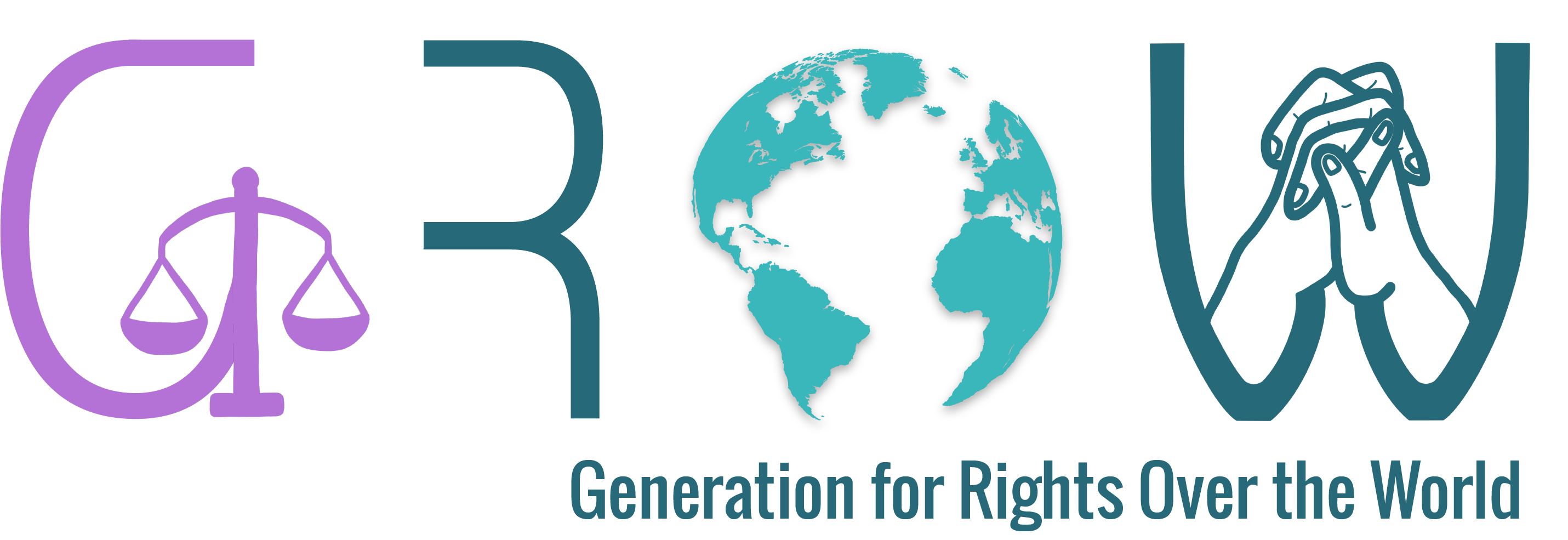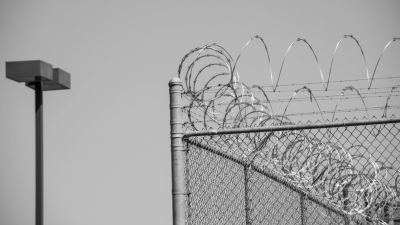“Here comes the story of the Hurricane
The man the authorities came to blame
For somethin’ that he never done
Put in a prison cell, but one time he could-a been
The champion of the world”
The song
Bob Dylan, whose real name is Robert Zimmerman, is an American artist (singer, songwriter, composer, painter, poet …) known worldwide and emblematic of folk music. He is even more famous for his numerous stances on socio-economic causes, be is also known for his pacifism (member of the “anti-war movement”). His songs, with their deep and thoughtful lyrics, earned him the Nobel Prize for Literature in 2016, in recognition of his contribution to the renewal and influence of American culture around the world.
In 1976, the singer released his album Desire, in collaboration with lyricist Jacques Levy, which included the controversial song ‘Hurricane’, written in 1975. This song, which is particularly long (8 minutes and 32 seconds), can be described as a ‘protest song‘. In other words, it is an artistic way of defending a cause, of making one’s voice heard on a societal theme. In this case, the artist is outraged by the injustice suffered by the boxer Rubin Carter, who was convicted in 1966.
The specificity of this song is that it is formed in such a way as to tell a story; when you read the lyrics, you almost feel as if you are following the unfolding of a novel. You feel as if you are directly witnessing the events and, from the very first words, you are drawn into the story; it’s as if we too were hearing the gunfire.
The real facts
On the night of June 17, 1966, gunshots rang out in the small town of Paterson, New Jersey, a western suburb of New York City. The Lafayette Bar and Grill was attacked: three people died on the spot, while a fourth person, Willie Martins, survived losing an eye. Patricia, ‘Patty’ Valentine, living above the bar, is the first to arrive at the scene of the crime (‘Enter Patty Valentine from the upper hall’) and she comes face to face with Alfred Bello (‘And another man named Bello, movin’ around mysteriously’). The latter explains that he is just a petty criminal who was robbing a bar next door when he heard the killing (“I didn’t do it, he says, and he throws up his hands / I was only robbin’ the register, I hope you understand”). Both of them notify the police and give their testimony: they say they saw two black men running away from the bar in a white car, towards the west of the city (“He said, I saw two men runnin’ out, they looked like middleweights / They jumped into a white car with out-of-state plates”).
Yet the description of the car matched that of Rubin Carter.
Rubin Carter (1937-2014), nicknamed Hurricane, was an American boxer of the 1960s. He grew up in Paterson, where he was noticed for his dubious actions (assaults, robberies) which led to him being placed in a centre for juvenile delinquents at the age of fourteen. He escaped and joined the army. However, he was soon discharged for insubordination. Later sentenced to four years in prison for several assaults, he discovered boxing and became a professional upon his release. He was soon nicknamed “Hurricane” for his aggressive style and his ability to knock out his opponents in the first round (a bit like a hurricane that destroys everything in its path, which cannot be opposed). In 1963 he reached 3rd place in the Ring Magazine1rankings after defeating Emile Griffith, the former world champion.
On the night of the triple homicide, he is out for a drive with friends, having spent the evening together. The police arrest them and immediately take them to the scene of the crime, despite their misunderstandings. However, the investigation is not carried out according to the usual procedures and the fingerprints at the crime scene are not taken, which prevents any comparison with those of Rubin and his friend John Artis. Moreover, none of the witnesses could clearly identify Carter and Artis as the culprits, including Willie Martins, the survivor who had become partially blind, who was introduced to the two men at the hospital to identify them (Cop said, wait a minute, boys, this one’s not dead / So they took him to the infirmary / And though this man could hardly see / They told him that he could identify the guilty men.) Despite this, they are still taken to the police station for questioning, as a gun matching the one used in the bar was found in Carter’s car. There they are given a lie detector test, the dubious results of which do not provide any real evidence against the two men: they are released later in the day.
Sometime later, Bello reveals to the police that he was not alone on the night of the murder and that Arthur Dexter Bradley was also present with him at the scene of the crime. Each in turn and in different interrogations, they identify Carter and Artis as the men they saw leaving the bar on the night of 17 June 1966. Based on this evidence, the police arrested Carter and Artis, despite the discrepancies with previous testimony, including that of Bello. This additional “evidence”, coupled with Patty Valentine’s testimony about the car and the gun, was enough to convince the all-white jury (“The D.A. said he was the one who did the deed / And the all-white jury agreed”), which sentenced them to life.
During his sentence, Carter wrote his biography, The Sixteenth Round: From Number 1 Contender to #45472, published in 1974, to expose the injustice he had suffered. Through this work, he gained widespread media and popular support, including that of Bob Dylan, who undertook to defend his cause and promised not to stop until Carter was released.
As the media coverage grew, the two key witnesses in the case, Bello and Bradley, withdrew. This is especially true when recordings are revealed of arrangements between the witnesses and the police at the time of the conviction, which allows the trial to be reopened (We got you for the motel job and we’re talkin’ to your friend Bello / You don’t wanta have to go back to jail, be a nice fellow.). During the hearings, Bello’s version kept changing and in 1975 he finally stated that he was not even outside during the attack and therefore had not seen the scene, unlike Bradley. Popular and political protests redoubled to force the court to drop the charges.
In 1976, the New Jersey Supreme Court overturned the previous verdict, declaring that the defendants had not been afforded their full rights: after nearly 10 years in prison, Carter and Artis were released on bail.
But in December 1976, during the second trial, Bello changed his version of the facts once again, repeating the one already given in 1967 and formally identifying Carter and Artis as the authors of the triple homicide. The jury, this time composed of two African-Americans, found the boxer and his friend guilty once again in less than 9 hours of deliberation. After only 10 months of parole, they returned to prison for life.
In November 1985, after numerous attempts by Carter’s lawyers, US District Court Judge Haddon Lee Sarokin took up the case and found that the basic charge was based “on racism rather than reason and concealment rather than transparency. “. In other words, he found that Carter and Artis had not received a fair trial according to the basic laws and principles of the United States. He called for Carter’s immediate release (Artis had previously been released on conditional release) and reprimanded the State of New Jersey for basing its charges on dubious evidence, and even for deliberately withholding evidence.
On 26 February 1988, all charges against Rubin were dropped and he was officially cleared and released after 22 years in prison.
The reception
Bob Dylan had originally written another version of the song, in which he said that Bello and Bradley had been caught stripping the bodies. Since this was not proven and came directly from the composer’s mind, his lawyers warned him that he would be sued for defamation. So he agreed to change the lyrics.
However, his deliberate choice of naming the characters by their real names led to legal action by Patricia Valentine, who did not agree at all with the facts of ‘Hurricane’.
The singer is also often criticised for taking too many sides and romanticising his version of events. For example, he deliberately leaves out part of the story, such as Carter’s past, or the fact that he found a similar weapon in his car.
There are also other inaccuracies that he is accused of, such as saying that Carter was the number one middleweight boxer at the time, when he was only ranked 9th in 1966 by Ring Magazine. Finally, the phrase: “Rubin’s in South America, fightin’ for his name” apparently has no explanation and remains misunderstood to this day.
However, it is impossible to deny the impact of this song on the media coverage of the trial and the rallying of thousands of people to the boxer’s cause, including celebrities such as Muhammad Ali2, Stevie Wonder3, Ringo Starr4, etc. Two charity concerts were even organised in Carter’s honour to demand his release: Hurricane Night on 12 August 1975 at Madison Square Garden in New York and Hurricane Night II on 25 January 1976 in Houston.
For posterity
“Hurricane” is a certified gold record in Australia and Italy, and it remains one of Bob Dylan’s most famous songs, accumulating over 128 million streams on Spotify.
After his release, Rubin Carter became executive director of the Association for the Wrongly Convicted between 1993 and 2005. He died of prostate cancer on 20 April 2014 in Toronto at the age of 74.
To learn more about his life, the story of the boxer is told in the 1999 film Hurricane Carter, directed by Norman Jewison.
Original lyrics
Pistol shots ring out in the barroom night
Enter Patty Valentine from the upper hall
She sees a bartender in a pool of blood
Cries out my God, they killed them all
Here comes the story of the Hurricane
The man the authorities came to blame
For somethin’ that he never done
Put in a prison cell, but one time he could-a been
The champion of the world
Three bodies lyin’ there does Patty see
And another man named Bello, movin’ around mysteriously
I didn’t do it, he says, and he throws up his hands
I was only robbin’ the register, I hope you understand
I saw them leavin’, he says, and he stops
One of us had better call up the cops
And so Patty calls the cops
And they arrive on the scene with their red lights flashin’
In the hot New Jersey night
Meanwhile, far away in another part of town
Rubin Carter and a couple of friends are drivin’ around
Number one contender for the middleweight crown
Had no idea what kinda shit was about to go down
When a cop pulled him over to the side of the road
Just like the time before and the time before that
In Paterson that’s just the way things go
If you’re black you might as well not show up on the street
‘Less you want to draw the heat
Alfred Bello had a partner and he had a rap for the cops
Him and Arthur Dexter Bradley were just out prowlin’ around
He said, I saw two men runnin’ out, they looked like middleweights
They jumped into a white car with out-of-state plates
And Miss Patty Valentine just nodded her head
Cop said, wait a minute, boys, this one’s not dead
So they took him to the infirmary
And though this man could hardly see
They told him that he could identify the guilty men
Four in the mornin’ and they haul Rubin in
They took him to the hospital and they brought him upstairs
The wounded man looks up through his one dyin’ eye
Says, wha’d you bring him in here for? He ain’t the guy!
Here’s the story of the Hurricane
The man the authorities came to blame
For somethin’ that he never done
Put in a prison cell, but one time he could-a been
The champion of the world
Four months later, the ghettos are in flame
Rubin’s in South America, fightin’ for his name
While Arthur Dexter Bradley’s still in the robbery game
And the cops are puttin’ the screws to him, lookin’ for somebody to blame
Remember that murder that happened in a bar
Remember you said you saw the getaway car
You think you’d like to play ball with the law
Think it might-a been that fighter that you saw runnin’ that night
Don’t forget that you are white
Arthur Dexter Bradley said I’m really not sure
The cops said a poor boy like you could use a break
We got you for the motel job and we’re talkin’ to your friend Bello
You don’t wanta have to go back to jail, be a nice fellow
You’ll be doin’ society a favor
That sonofabitch is brave and gettin’ braver
We want to put his ass in stir
We want to pin this triple murder on him
He ain’t no Gentleman Jim
Rubin could take a man out with just one punch
But he never did like to talk about it all that much
It’s my work, he’d say, and I do it for pay
And when it’s over I’d just as soon go on my way
Up to some paradise
Where the trout streams flow and the air is nice
And ride a horse along a trail
But then they took him to the jailhouse
Where they try to turn a man into a mouse
All of Rubin’s cards were marked in advance
The trial was a pig-circus, he never had a chance
The judge made Rubin’s witnesses drunkards from the slums
To the white folks who watched he was a revolutionary bum
And to the black folks he was just a crazy nigger
No one doubted that he pulled the trigger
And though they could not produce the gun
The D.A. said he was the one who did the deed
And the all-white jury agreed
Rubin Carter was falsely tried
The crime was murder one, guess who testified
Bello and Bradley and they both baldly lied
And the newspapers, they all went along for the ride
How can the life of such a man
Be in the palm of some fool’s hand
To see him obviously framed
Couldn’t help but make me feel ashamed to live in a land
Where justice is a game
Now all the criminals in their coats and their ties
Are free to drink martinis and watch the sun rise
While Rubin sits like Buddha in a ten-foot cell
An innocent man in a living hell
That’s the story of the Hurricane
But it won’t be over till they clear his name
And give him back the time he’s done
Put in a prison cell, but one time he could-a been
The champion of the world
Translated by Clémentine Gallot & Maryame Camara.
| ↑1 | Magazine founded in 1922 specialising in boxing and publishing a list of world boxing champions in each weight category. It also awards the title of “Boxer of the Year”. |
|---|---|
| ↑2 | Famous boxer between 1960 and 1980, considered a cultural icon. |
| ↑3 | An American singer-songwriter, he is one of the most important black icons of American pop music. |
| ↑4 | Drummer for the Beatles, considered one of the best drummers in history, he is also a writer, composer and performer. |








One of my favorite tunes. Why were the Canadians not mentioned in the article. The Canadians that fought for justice for the HURRICANE. The shame is these injustices still happen.